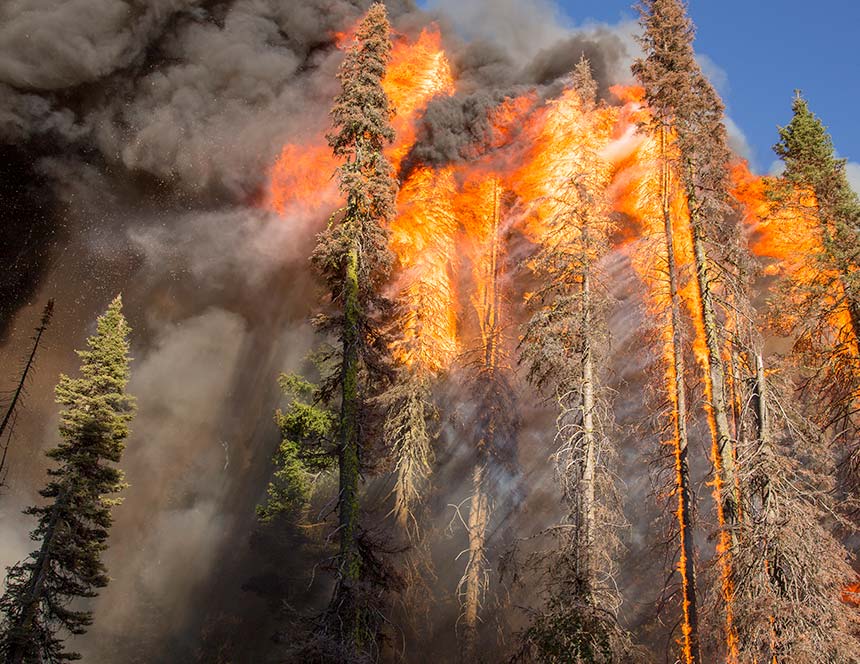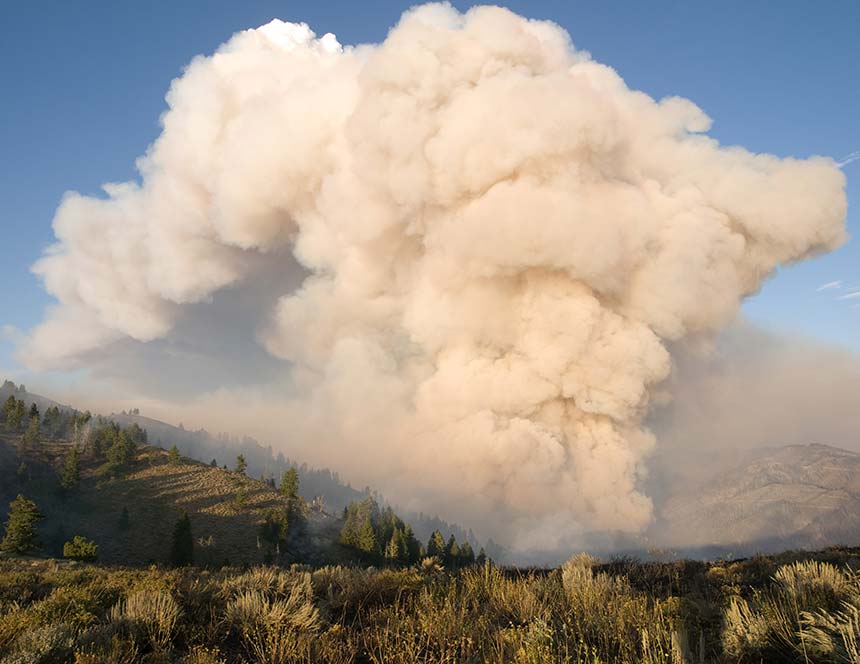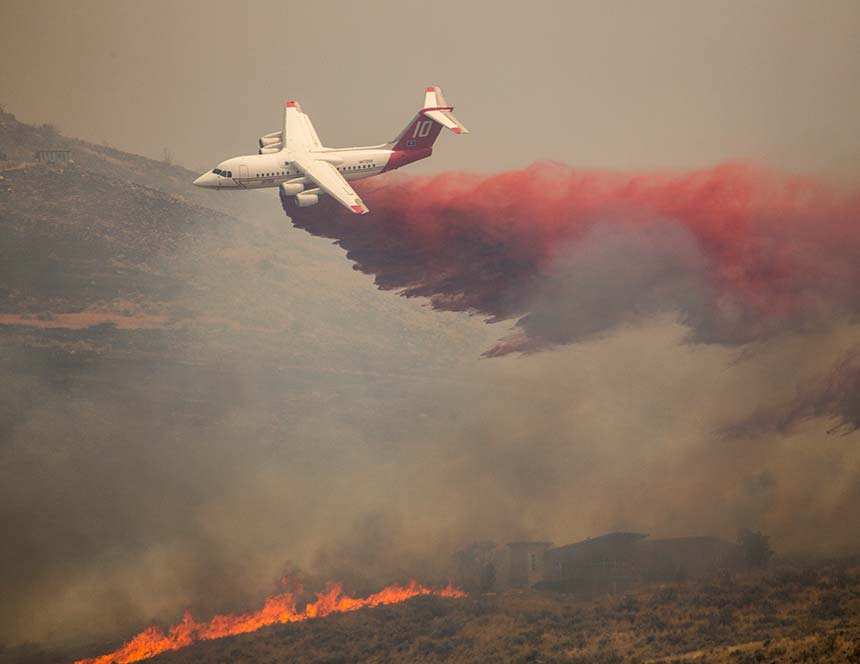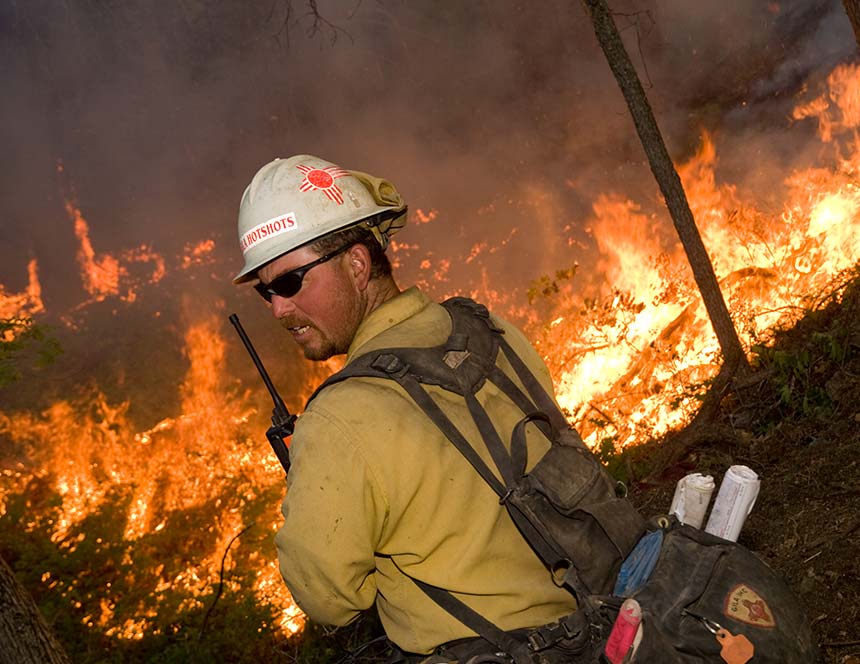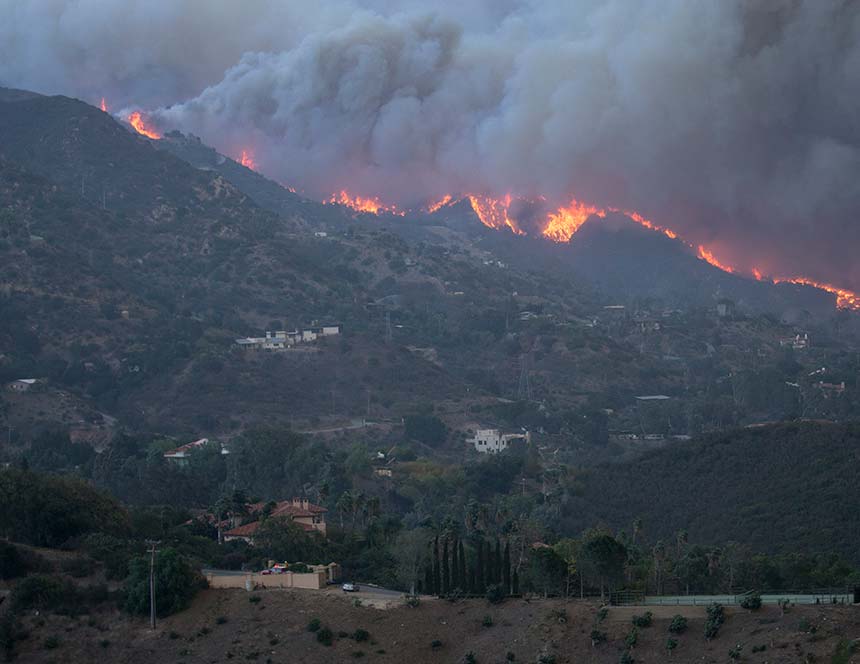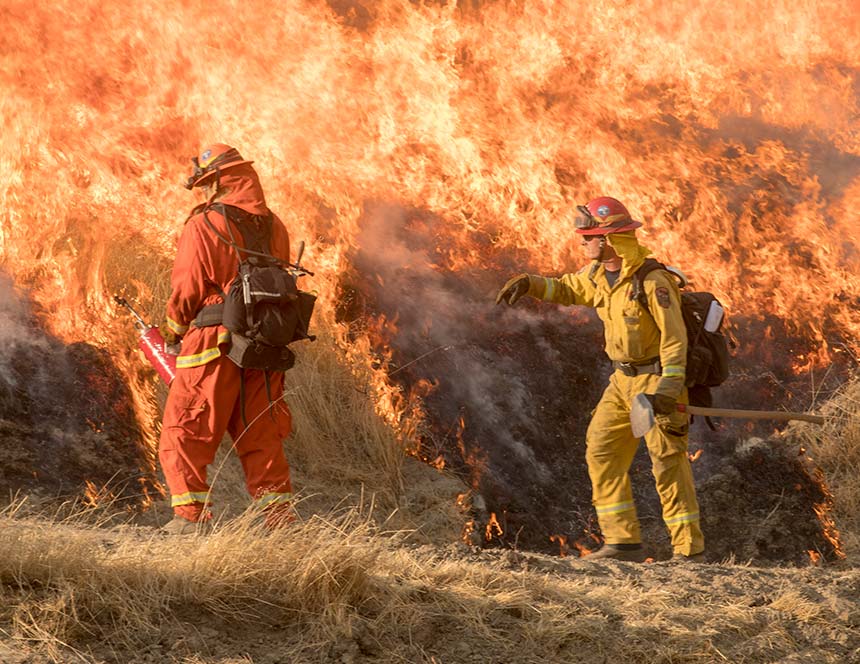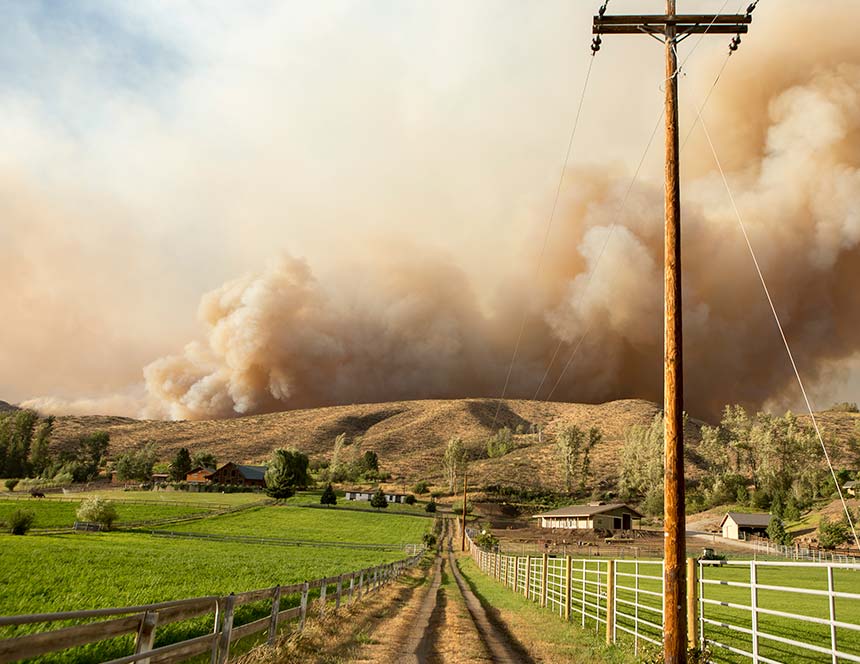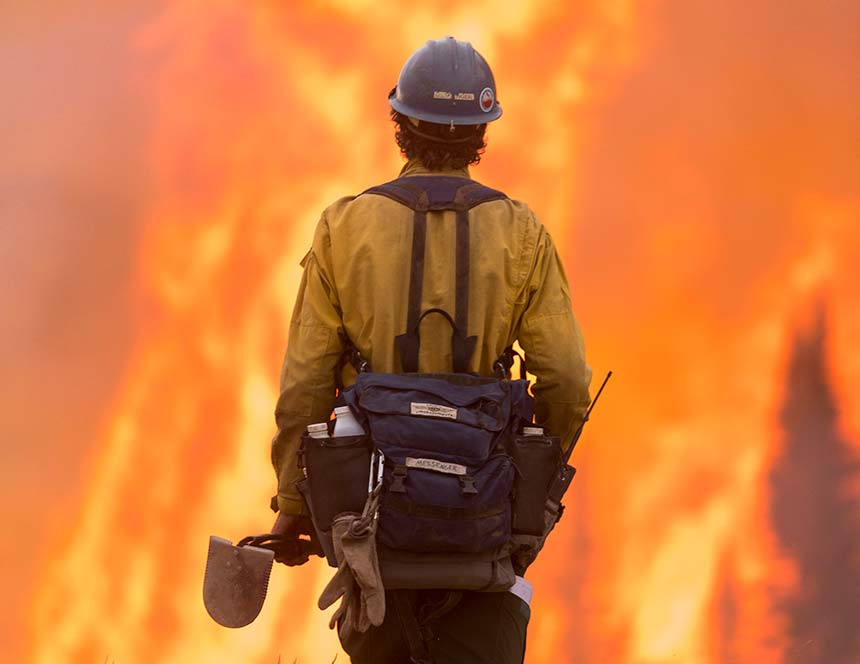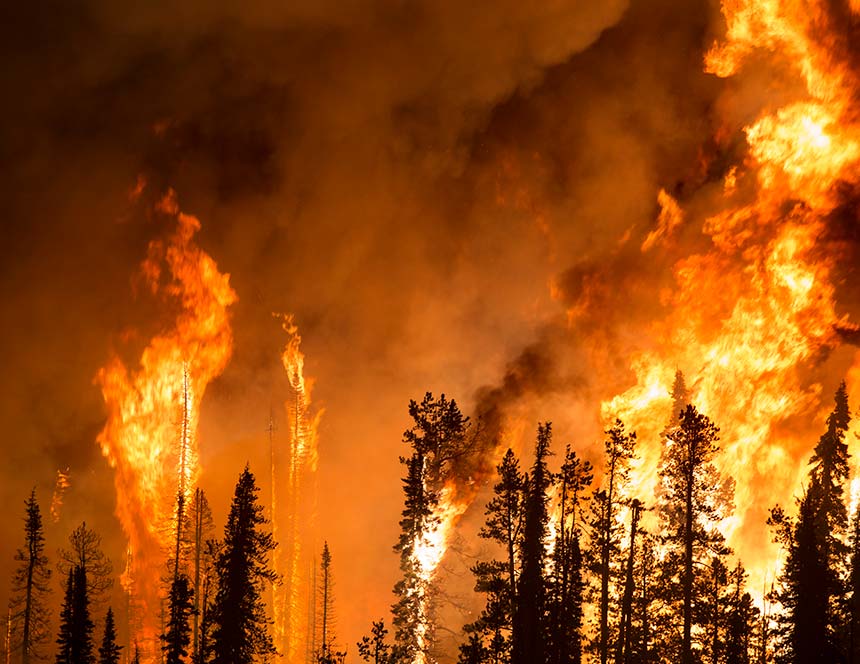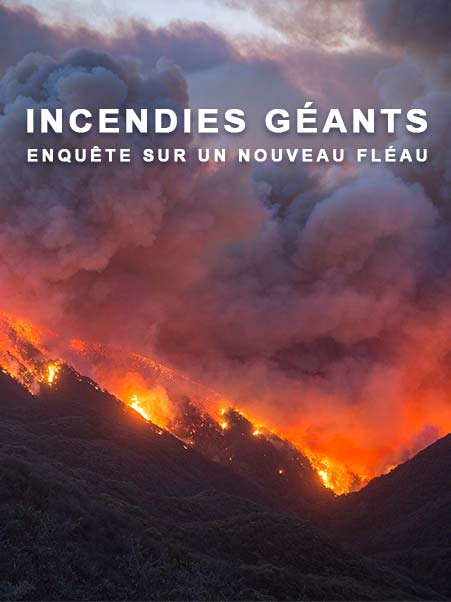Megafires
Investigating a global threat
© 2022 Georama TV Films Productions / ARTE France /NHK
A Co-Production



With the participation of







With the support of
Centre national du cinéma et de l’image animée
Europe Créative – Programme MEDIA de l’Union Européenne

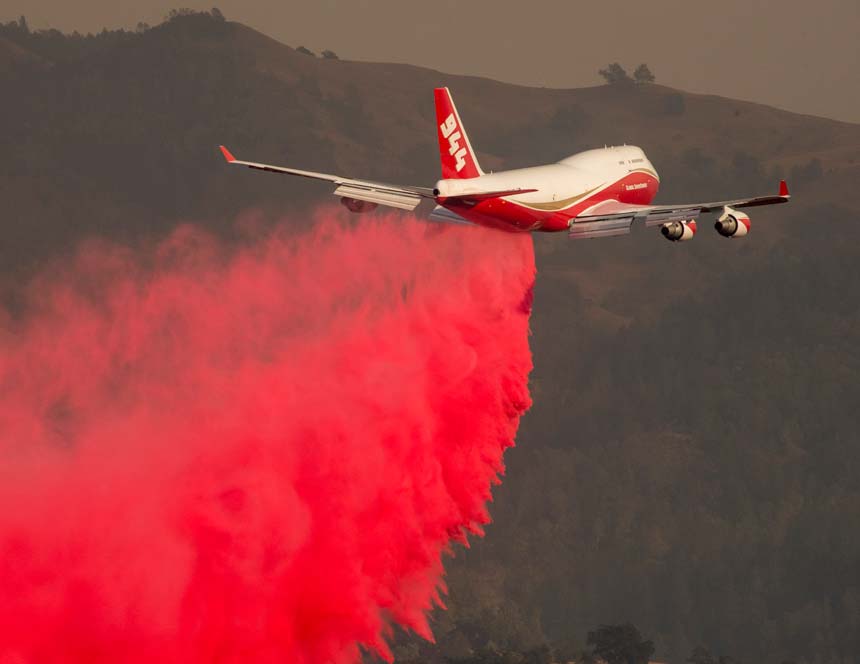
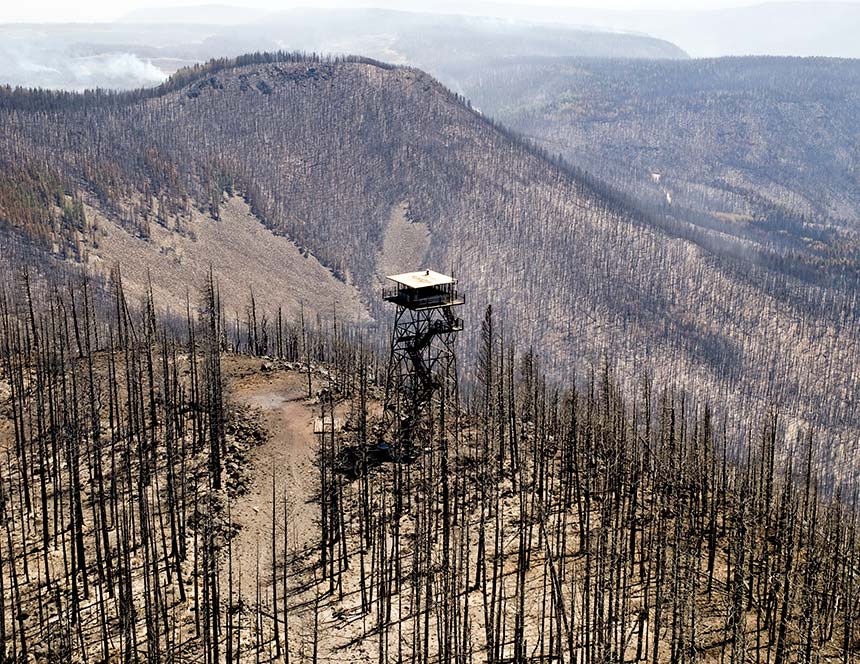
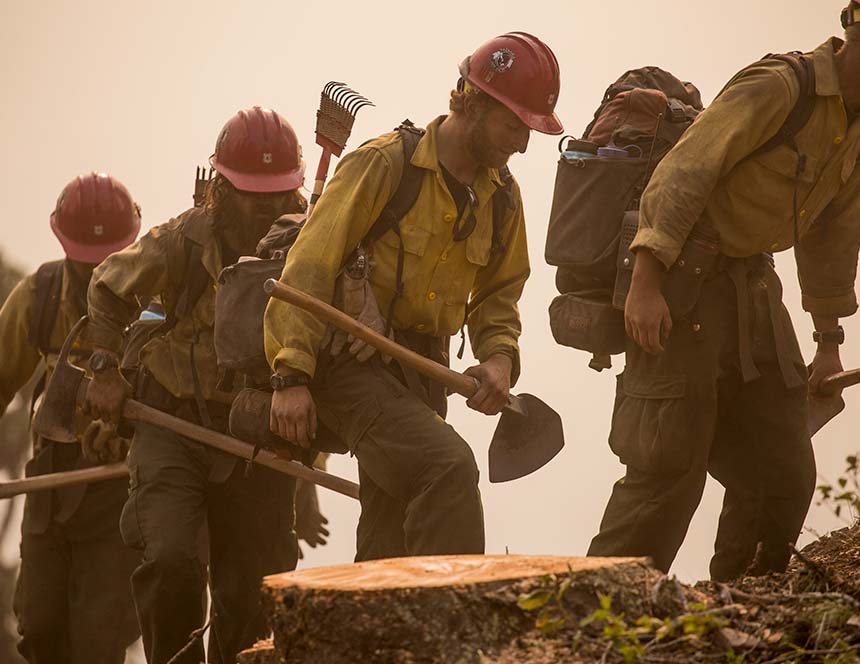
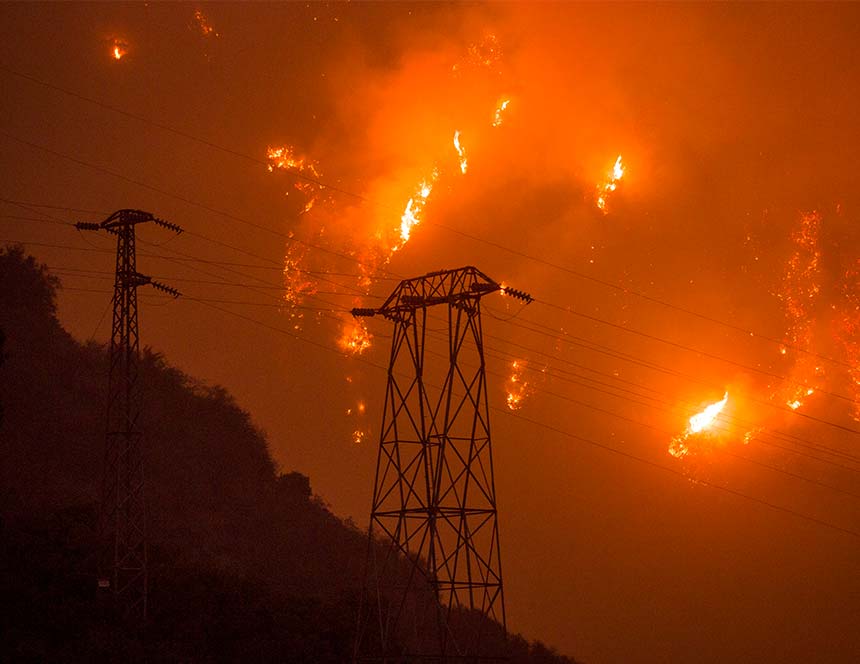
The world’s forests are on fire, threatening not only our homes and our lives, but also the climate and our future.
All over the globe, wildfires of unprecedented force are devouring our forests. Each year, 350 million hectares go up in smoke, the equivalent of six times the size of France. In the US, the fire season now lasts up to two months longer than a generation ago, and the surface burnt annually has multiplied by three.
This film travels to Europe, the US, Canada and Indonesia to meet a dedicated community of scientists, firefighters and experts who are investigating why the fires are getting out of control and what we can do to protect ourselves. Can we learn to live safely with megafires before our communities and our forests are all burnt up?
Festivals and awards
The earth is burning
For more than a decade, wildfires of unprecedented force have been devouring our forests at a steady pace. Each year, 350 million hectares of forest go up in smoke, the equivalent of six times the size of France. In the US, the fire season now lasts up to two months longer than a generation ago, and the surface burnt annually has multiplied by three.
The biggest and most ferocious fires, so-called ‘megafires’, are proving to be unstoppable even by experienced firefighters and cutting-edge technology. Even worse: megafires are increasingly attacking our communities, devouring family homes and claiming lives.
The outlook for the future is terrifying: whole suburban communities are becoming deathly firetraps; the scarred and blackened landscapes left behind may never fully recover. Wildfires damage our health, aggravate climate change and affect the economy.
But ironically, the more effort is mustered by modern firefighters, the more susceptible our forests seem to become to the hungry flames; this is a reality we need to face if we want to save our habitat and our lives. Can we learn to co-exist with fire?
During a gripping journey of investigation, from Europe to the US, Canada, and Indonesia, we will follow the work of a global team of dedicated firefighters, scientists and fire experts as they investigate why our forests are going up in flames, why the new megafires are beyond human control, and how we can learn to protect ourselves.
We will also meet the communities whose lives have been changed forever, often fatally, by megafires that engulfed their towns, and find out how ordinary citizens are taking action to protect their homes, families and their future.
In the face of impending catastrophe, can we move on from our ingrained belief that humans can control everything, including fire, and instead, learn to co-exist and live safely with fire, before our forests, cities and our climate are changed forever by the catastrophic flames?
To get started, we need to understand how fire actually works, and fundamentally change our view of it. Fire is not the enemy but a natural process, one that has historically been key to maintaining our eco-system. Now, this elemental mechanism is the starting point for possible solutions and new ways of living with fire in the future.
Film Crew
Cosima Dannoritzer
Written by
Nicolas Koutsikas
Cosima Dannoritzer
Image
Jean-Jacques Mréjen
Jacques Bedel
Benoît Demarle
Images of fires
Kari Greer
Special fire camera
Ian Crob
Bret Butler
Daniel Jimenez
Son
Patrick Mauroy
Scientifics
Mike Flannigan, Professor of Wildland Fire, University of Alberta
Mike Wotton, Research Scientist, Canadian Forest Service’s, Canadian Forest Fire Danger Rating System (CFFDRS)
Joshua Johnston, Forest Fire Analyst, Canada’s Great Lakes Forestry Centre, Sault Ste. Marie
Sonja Leverkus, Wildland Fire Ecologist, Shiftingmosaics, Fort Nelson, British Columbia
Paul Hessburg, Forest Ecologist, University of Washington
Mark Finney, Fire Scientist, Missoula Fire Science Lab, Montana
Sara McAllister, Fire Scientist, Missoula Fire Science Lab, Montana
Jack Cohen, research physical scientist (retired), Missoula Fire Sciences Laboratory, US
Bob Yokelson, Air quality chemist, University of Missoula, Montana
Patricia Maloney, forest ecologist and conservation biologist, UC Davis, California and Tahoe
Elizabeth Wiggins, Research scientist for wildfire emissions, NASA Langley Research Center, US
Guillermo Rein, Fire Scientist, Faculty of Engineering, Imperial College London
Alexander Held, European Forest Institute EFI, Senior Expert, Resilience Program, Bonn, Germany
Frank Krumm, Forest Ecologist, Swiss Federal Research Institute WSL, Birmensdorf
Guido Van der Werf, Earth Scientist, Earth and Climate Cluster, VU University Amsterdam
Gavriil Xanthopoulos, Wildfire expert, Greece’s Ministry of Rural Development and Food, Athens
Sergey Khaykin, Atmospheric scientist, LATMOS-CNRS, Sorbonne University, France
Bambang Hero Saharjo, Forestry expert, Bogor Institute, Indonesia
Colonel Grégory Allione, Président des Sapeurs-Pompiers de France
Colonel Claire Kowalewski, French Fire Service and Emergency Response Coordination Centre ERCC Brussels
Rob Hazard, Fire Chief, Santa Barbara County, California
Carlos Trindade, civil protection coordinator, Mafra, Portugal
Amber Anderson, Wildland Specialist, Fire Prevention Bureau, Santa Barbara, California
Lorna Dicks, Superintendante, Gendarmerie royale du Canada, Wood Buffalo Alberta, Canada
Susan Jane Brown, Lawyer, Western Environmental Law Center, US
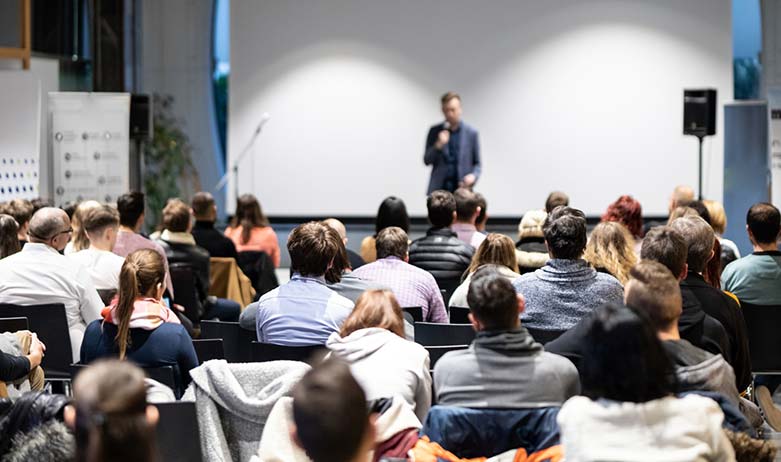
Organize a screening or conference






